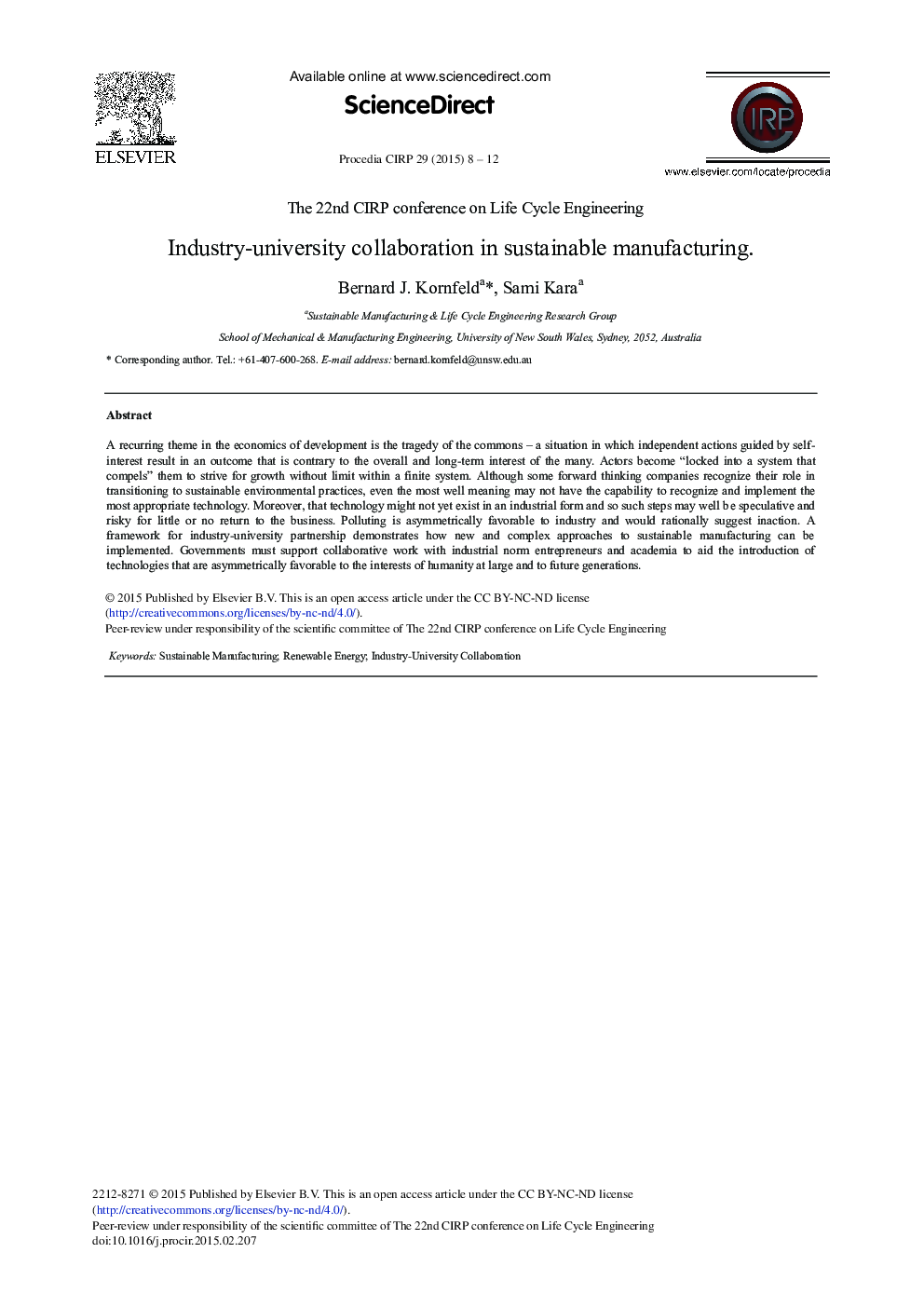| Article ID | Journal | Published Year | Pages | File Type |
|---|---|---|---|---|
| 1699736 | Procedia CIRP | 2015 | 5 Pages |
A recurring theme in the economics of development is the tragedy of the commons–a situation in which independent actions guided by self-interest result in an outcome that is contrary to the overall and long-term interest of the many. Actors become “locked into a system that compels” them to strive for growth without limit within a finite system. Although some forward thinking companies recognize their role in transitioning to sustainable environmental practices, even the most well meaning may not have the capability to recognize and implement the most appropriate technology. Moreover, that technology might not yet exist in an industrial form and so such steps may well be speculative and risky for little or no return to the business. Polluting is asymmetrically favorable to industry and would rationally suggest inaction. A framework for industry-university partnership demonstrates how new and complex approaches to sustainable manufacturing can be implemented. Governments must support collaborative work with industrial norm entrepreneurs and academia to aid the introduction of technologies that are asymmetrically favorable to the interests of humanity at large and to future generations.
